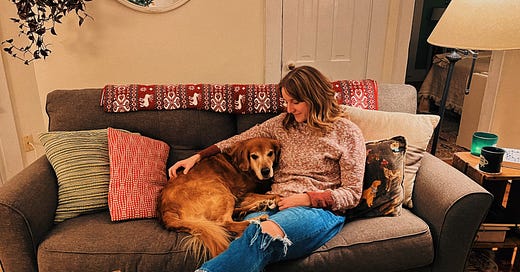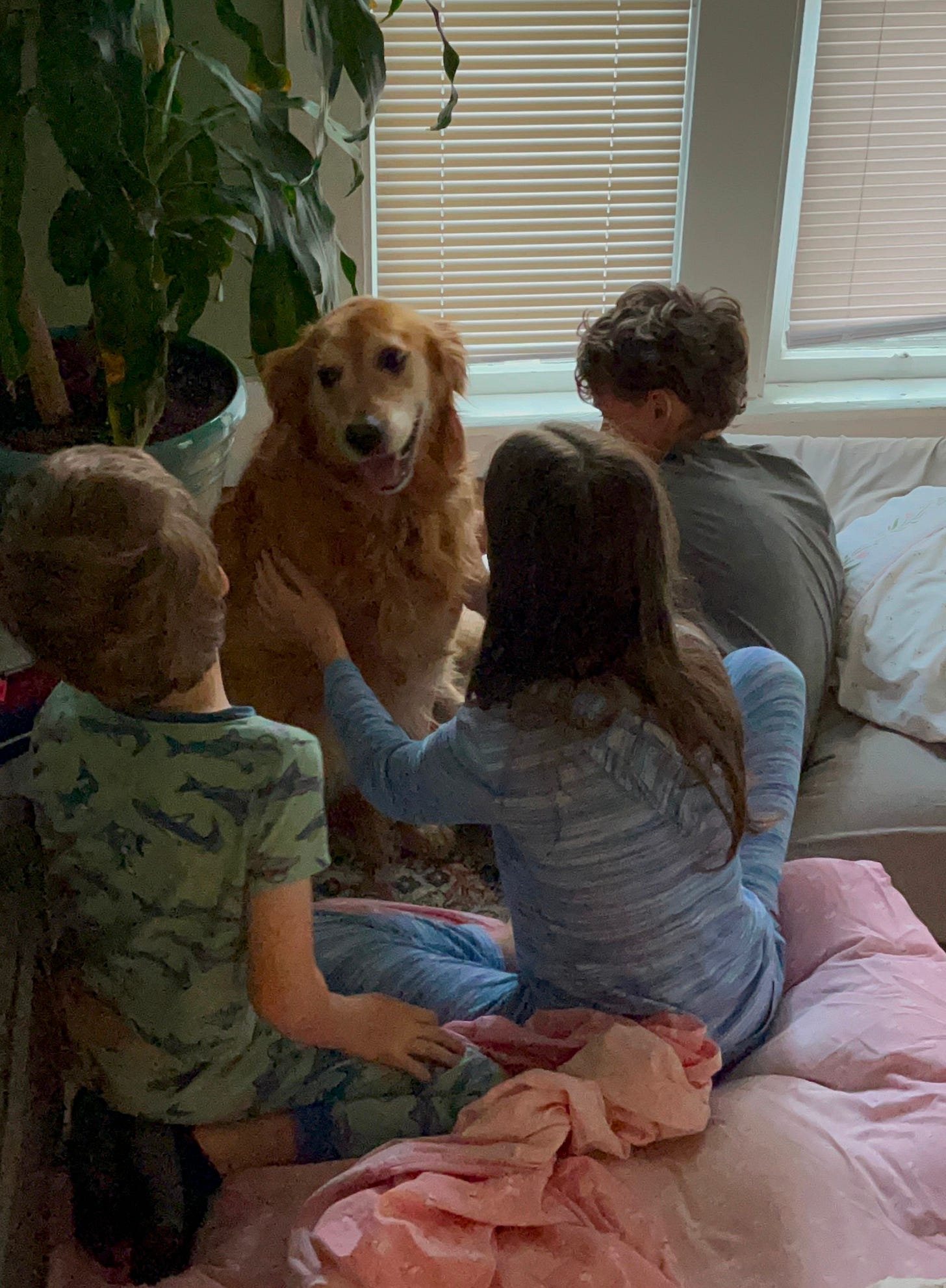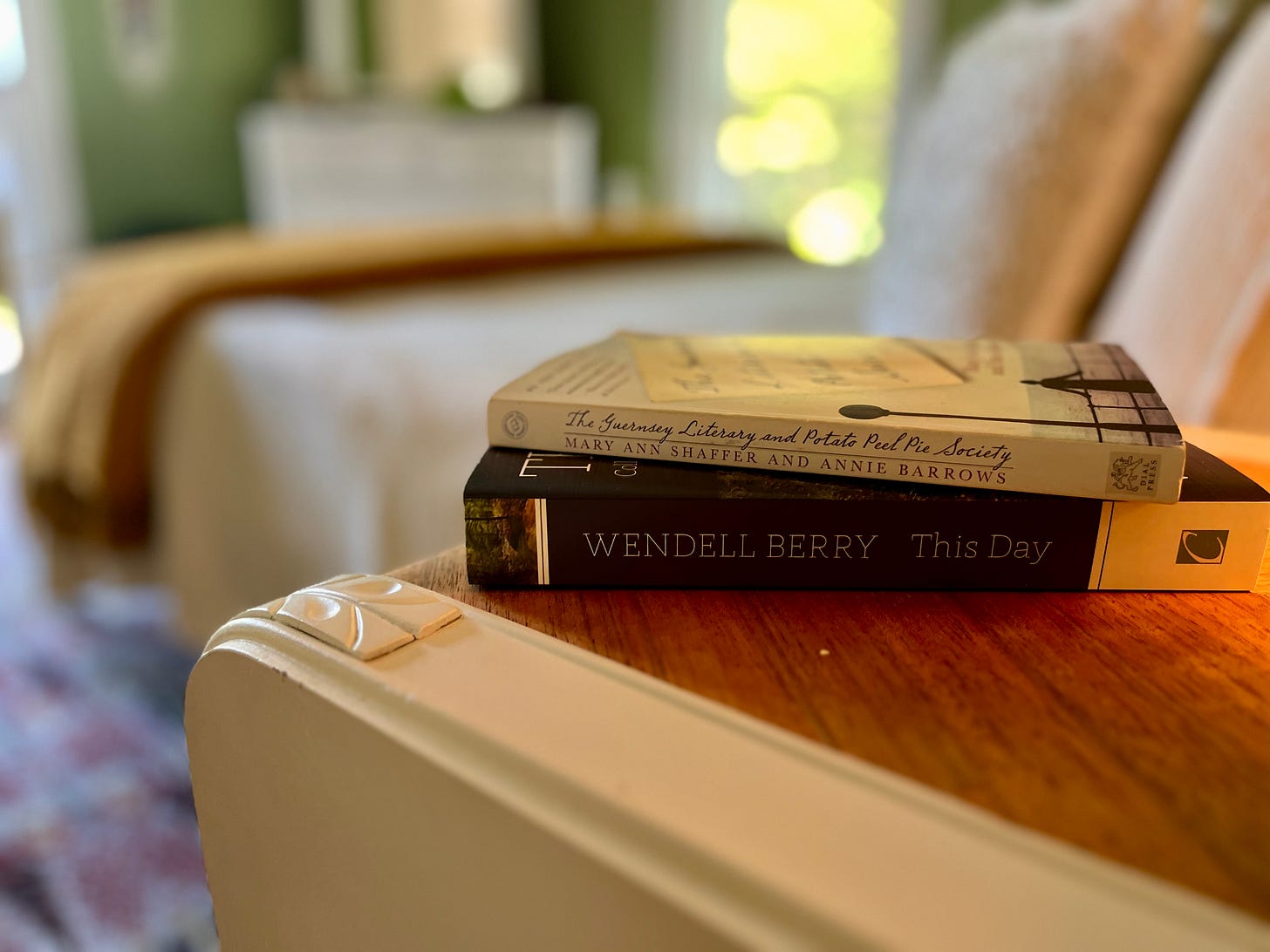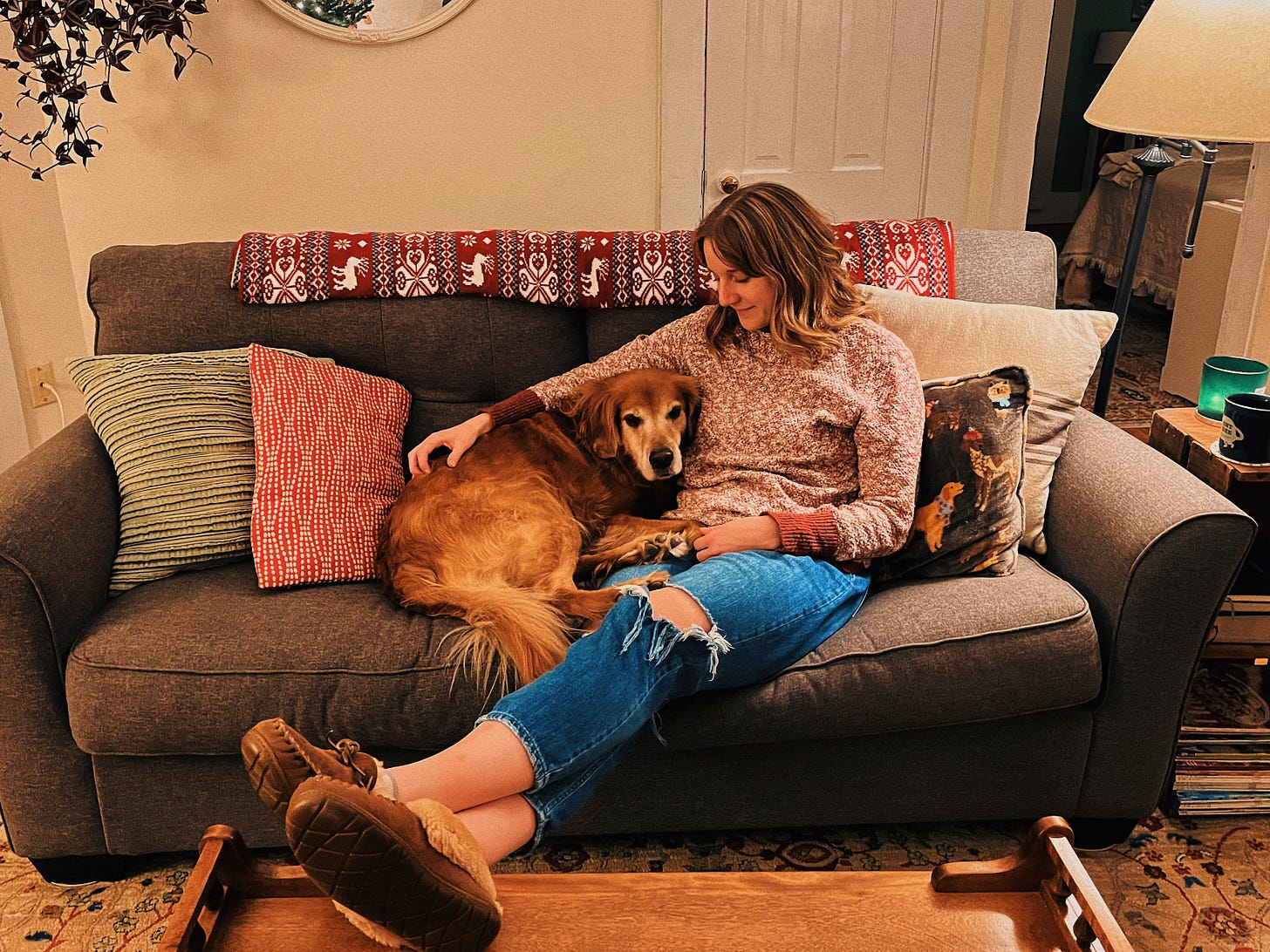Last week, I was sitting at the kitchen table of a friend when she asked me, “How has it been for you living alone?” This friend has seen me through several iterations of my living situation, including living with one roommate for four years, living with a temporary summer roommate, living alone for a year, living with another roommate for 9 months before she got married, and now my current set-up: once again alone. And as it turns out, I’m not alone in…well…living alone. Accordingly to the U.S. Census Bureau, 12% of men and 9% of women aged 25 to 34 lived alone, a statistic that has doubled since the 1970s.
When it came time to answer my friend’s question about how it’s been living alone, my first response was, “Good!” And really, it has been good. There are many good things about living alone, which I’ll get into more below. But like most things in life, something being good can also mean it can be complicated, challenging, hard-earned, and fickle. There are days I’m glad I have the space to myself and nights I spend too much time on social media because I’m craving connection with other people. There are moments when my social calendar is full and moments when I wonder, “Do I actually have friends?” There are moments when I feel tempted to redownload Hinge after deleting my account last summer, swearing never to return, because maybe that could be a solution to whatever lonely, fickle feeling strikes me at 8:25pm on a Tuesday.
I recently came across this note from
, which frames a thought and poses a question that I’ve been considering the last few months:When living alone, it is incredibly easy to build a life where you answer to no one. Accountability is something easily avoidable, and avoidance is easily adopted as a way of life. I get to choose the menu, manage my finances, plan my weekends, pick the TV show, set the thermostat, renew the subscription, and press Add To Cart. It can be an incredibly self-centered way of living, and sometimes, that freaks me out. And so lately, I’ve been trying to think about what it means to live well while living alone. What healthy habits can I continue to cultivate? What rhythms are worth keeping or starting? Who do I ask for accountability from as I get older? How do I keep myself in community as a household of one? What values govern and guide my care and keeping of this home?
I thought I’d share a few things I have already implemented or am trying to do in my attempt to live well while living alone. A perhaps disappointing disclaimer: I am sorry to say that what I share is not necessarily an exhaustive list that will help solve the problem of pain or a pang of loneliness. But these are just a few simple practices that I believe can help as I try to form a mature, healthy life. If you live alone, or have ideas for me, feel free to share what’s been healthy and helpful for you below in the comments. One thing I appreciate about Substack is how this space can be a lovely online community where people are generous to exchange ideas and encouragement. Let’s begin!
How I (try to) live well while living alone:
1. I’ve become an at-home teetotaler.
Early in my twenties, I remember having a conversation with one of my brothers about how when he was traveling alone away from his wife, he didn’t drink alcohol. That really stuck with me, and one of the choices I’ve made in living alone is that I don’t keep alcohol in my house unless people are coming over for dinner and we’re planning to share it together. I don’t struggle with my relationship with alcohol, but alcoholism does run in my extended family, and I think it’s prudent to remain humble given my genetic predispositions. And so I chose to make a rule for myself. While some might argue that by not having it in my house, I’m just setting myself up for temptation to overindulge if alcohol is around, but this is where the communal aspect comes in. I think drinking a glass of wine or having a beer with friends can be a celebratory addition to a communal meal, and I even enjoyed a fine wine tasting at a Christian conference a few years ago that made me appreciate wine even more. But for me, some boundaries needed to be put up, so that’s what I did.
2. I got a dog.
Now this might sound silly but stick with me: I think having a dog really helps in the aspiration to live well while living alone. Having a dog has taught me to care and be considerate of my obligation to things other than my own personal preferences, schedule, well-being, etc.. I don’t call my dog my child, but my dog is very important to me and she has become a major part of my life since I got her nearly 9 years ago. Taking my dogs for walks around my town and neighborhood has also allowed me to connect with my neighbors I might not otherwise have met; a few blocks down from me, I befriended a husband and wife who are the age of my parents, and this is all because I kept walking with my dog past their house every day. I know what job their daughter has and where they like to vacation and who they vote for and who they definitely do not vote for and they know I’m a Christian and I know they’re not really into that but the husband asked if it’s okay if he swears in front of me still and the wife has shown me her quilt room and they pet my gray-faced dog on the head and I think this is what being good neighbors looks like.
3. I try to steward the space (Part 1).
For me, stewarding my space while living alone has looked differently from season to season. Last year, it meant transitioning from living alone to actually having a roommate who needed a place to live before she got married. The summer before that, it meant committing to hosting a weekly summer Bible study in my living room. Sometimes it’s looked like telling a friend she’s welcome to sleep in my apartment when I’m away on vacation, or hosting couples or families for dinner. Each summer, I host my niece and two nephews for “Aunt Grace Camp,” which has become a cherished tradition. I can be SUPER DUPER selfish about my space, my time, my preferences, and my money, but when you invite people in, I think it helps reorient your understanding of what all those things are really for: they’re for building and bolstering a life designed to be lived for and with others.
3. I try to steward the space (Part 2).
Another practice with stewarding my space is trying my best to keep it clean. This means that at some point during the day or evening, I stop what I’m doing and attend to my space in some way—put away clothes, fold laundry, take out the trash and recycling, scrub out the sink, sweep up crumbs, brush the dog, dust, wash the dishes and unload the dishwasher. I am not militant about my home’s cleanliness, but I believe that it’s important to take care of what we have, and so I’ve tried to change my perspective about some of these tasks that I honestly get pretty tired of doing. If you’re interested in a grace-based perspective on attending to tasks like I’ve mentioned, I highly recommend Tish Harrison Warren’s Liturgy of the Ordinary. Tish is one of my favorite authors and does such a wonderful job writing about the role that Christ plays in the tangible, human parts of our lives, and how the cross forms who we are and what we do.
“A sign hangs on the wall in a New Monastic Christian community house: “Everyone wants a revolution. No one wants to do the dishes.” I was, and remain, a Christian who longs for revolution, for things to be made new and whole in beautiful and big ways. But what I am slowly seeing is that you can’t get to the revolution without learning to do the dishes. The kind of spiritual life and disciplines needed to sustain the Christian life are quiet, repetitive, and ordinary. I often want to skip the boring, daily stuff to get to the thrill of an edgy faith. But it’s in the dailiness of the Christian faith—the making the bed, the doing the dishes, the praying for our enemies, the reading the Bible, the quiet, the small—that God’s transformation takes root and grows.”
4. I put my phone to bed.
About 5 years ago, I read another brilliant book by a favorite of mine, Andy Crouch’s The Tech Wise Family. This is another book that I think can be read even in a household of one. In it, Andy talks about putting technology in its proper place, and has so many convicting and helpful thoughts around how our devices form our desires. Just read the whole book! But one thing that stuck with me is that I put my phone to bed and I never take it to bed with me. Endlessly scrolling is something I can use to self-soothe much more than I wish I did, so I have just had to make a practice for myself to eliminate that from the process of ending my day. It’s still definitely a work in progress for me during other times of the day to not rely on my phone for social connection or stimulation, but putting it away around 9 pm has been a helpful thing for me to put into practice. Instead, I usually write in my prayer journal and then read.
5. I got a spiritual director.
Last winter, I stepped away from the church I had been attending and found myself without a pastor for the first time ever. And blessed be to God because around that departure, a long-time mentor and wise friend of mine from my college days asked me if I’d be interested in beginning a formal cadence of spiritual direction sessions with her, as she had just completed years of training and preparation for this next step in her ministry. A spiritual director is not the same as a pastor or a counselor, so I’m not saying she replaces those things in my life. But what she does do is offer wise, steady guidance to help me navigate the challenges of discernment, decision-making, and discipleship that come when you live in a household of one. I cannot say enough how essential this relationship and practice has been in my life. Sometimes, I don’t realize how much I needed to be drawn out of me until our monthly session rolls around. If you live alone and sort of feel stilted or like you might have more to process outside of regular, everyday updates with loved ones, I’d really recommend finding a trained and trusted spiritual director to add into your life.
As I said before introducing these ideas, this list does not and has not solved all the problems or challenges of living alone. Sometimes, I’m not sure if I should continue living alone or not, but for now, I am and I am also making intentional choices to live as healthily as I can as I do in this season. Some days, living alone feels good and I feel like I am doing well at living alone. Other days, I am a mess—both figuratively and literally. But if I could leave you with one final thought, it would be this one from Tish Harrison Warren:
“But here's the thing: pretty good people do not need Jesus. He came for the lost. He came for the broken. In his love for us he came to usher us into his foundness and wholeness.”
As I reflect on the circumstances that add context to my current status as a household of one, I am grateful and humbled to realize that I am not waiting to begin building a whole and faith-filled life until I’m a certain age, or I’m married, or I own a home. Jesus is always ushering me into a fullness of life—right where I am. So no matter how messy my home gets, how high my screentime is, or however many mistakes I make along the way, God’s mercies are new every morning. Each day is an opportunity to wake up and rely on Jesus for my every need.
And that, my friends, is the good life.








My favorite quote: “I am grateful and humbled to realize that I am not waiting to begin building a whole and faith-filled life until I’m a certain age, or I’m married, or I own a home. Jesus is always ushering me into a fullness of life—right where I am.”
Yes and Amen. He recently reminded me of this as well—that I am not waiting for anything. As a fellow single woman living alone, I loved this read! God bless you 🩷
Woah! I’m literally about to live alone for the first time as of this weekend! Just got my own apt! This was a great read. Thank you for writing it, Grace! 😊